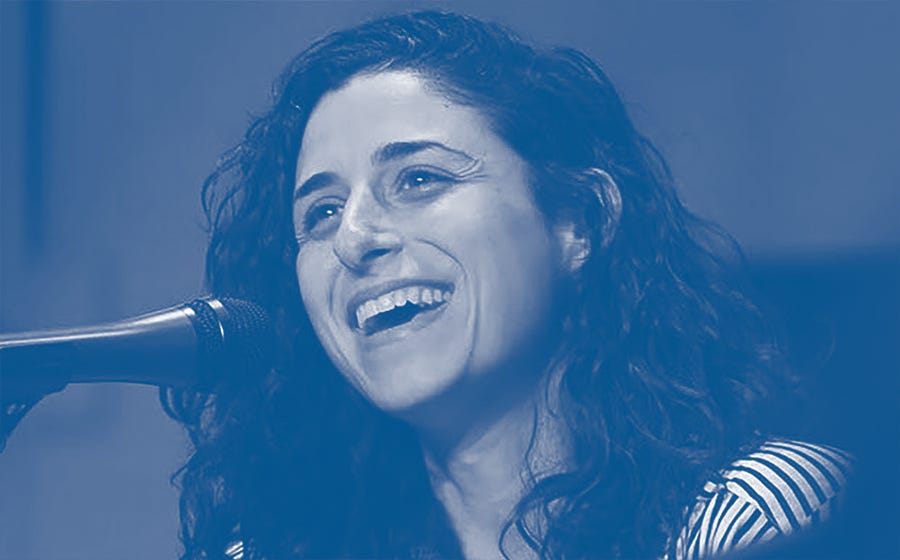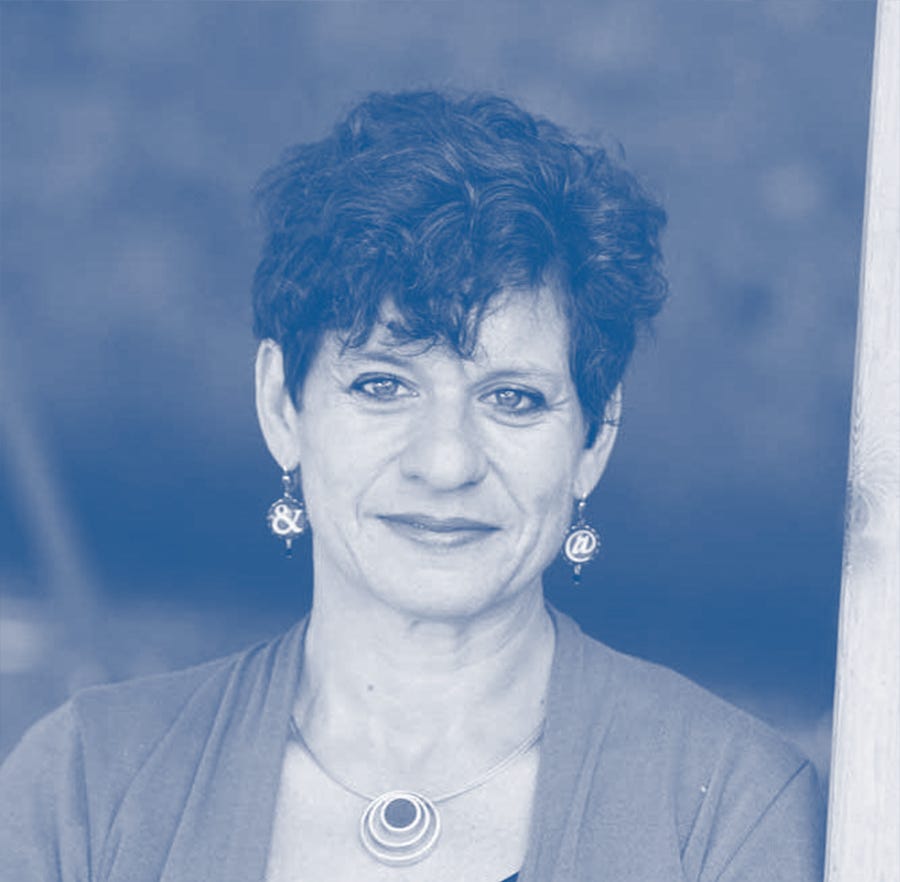Hello! Welcome to 5784 and the September issue of the Documensch Newsletter. As we prepare for our first event on Jewish Media in America, we’re excited to share interviews with our guests, Arielle Angel, Editor-in-Chief of Jewish Currents, and Jodi Rudoren, Editor-in-Chief of The Forward. Both editors share their publications’ history and current role in Jewish life, along with observations on the ways the American Jewish community has changed over the years. Each interview also points to the potential for archives to more expansively represent and reflect Jewish life.
We also have pieces exploring evolving perspectives of Jewish security and some choice b’nai mitzvah holdings in the Berman Archive inspired by the popularity of Adam Sandler’s bat mitzvah themed film.
As always, reach out with feedback, articles we should consider sharing, or documents we should consider archiving. We can be reached at bermanarchive@stanford.edu.
Thanks for reading,
-Ari
Ari Y Kelman, Director, Berman Archive
Subscribed
Jumpstarting Jewish Currents
Under Arielle Angel’s stewardship, Jewish Currents has become bolder and more engaged with the issues, politics, and perspectives of a new generation of American Jews. Ahead of her visit to Stanford for our Jewish Media in America event, we had the opportunity to interview her.
Berman Archive: What is the role of the Jewish press in Jewish life in America?
Arielle Angel: First and foremost, the Jewish press has a responsibility to hold power to account in the Jewish establishment and the Jewish institutional landscape, particularly because the organizations that claim to represent Jews on a national stage are not democratic organizations. I also think the Jewish press has to help Jewish people see and understand themselves in this moment in American history, as Jews have become more assimilated even as Jewishness itself is hyper-politicized in a number of directions. The Jewish press can help people make sense of themselves as Jews in the world and bring a measure of Jewish literacy into their lives. To do this responsibly is to eschew a knee-jerk stance of grievance or fear in favor of one of curiosity and sober assessment.
Berman Archive: What has been your most impactful Jewish archive find in any archive?
Arielle Angel: Personally, I’m not really an archive head; I’m an editor. Scholars bring me stuff that they find in archives, and I try to publish it! That said, we recently published a version of the Israeli Black Panthers Haggadah, written in 1971 by central members of the Mizrahi movement. It was pretty much lost, but it turned out there was one archive in Jerusalem that had a copy; we were able to piece it back together and translate and footnote it with a movement co-founder, Reuven Abergel and other scholars. I think that’s a pretty important find in terms of understanding the work that was done by Arab Jews fighting for their own liberation, as well as the connections they made between their plight and Palestinian plight. I also really like the work that Devin Naar is doing in the archive, thinking about the racial formation of Ladino-speaking Jews in New York at the turn of the century, and their relationships of solidarity with Puerto Rican workers and their role in Spanish-speaking workers’ struggles in New York City. I find that stuff really fascinating for what it suggests about Jewish identity formation in relation to race, class, political affiliation, you-name-it.
Forward Motion
Jodi Rudoren’s Forward is a daily must-read for American Jews looking for a credible, smart, and comprehensive Jewish perspective on the news. We’re excited to welcome Jodi to Stanford in a few weeks and, like Arielle, she agreed to be interviewed ahead of the talk.
Berman Archive: What is the role of the Jewish press in Jewish life in America?
Jodi Rudoren: The latest Pew study showed that there are large and growing numbers of Americans who are excited and proud to be Jewish — and that most of them are disappointed or disillusioned (or worse) by mainstream Jewish institutions, including synagogues and establishment groups like AIPAC, ADL and the rest of the alphabet soup. Jewish journalism is a low-barrier-to-entry way for every type and stripe of Jew to take a step closer to their Jewishness however they define it.
We provide a Jewish lens on the news and a guide through the conversations convulsing our communities. We provide probing coverage of arts and culture, and robust debate on the issues of the day. We connect people to each other, and especially in smaller Jewish communities, can be the most reliable and vibrant Jewish thing available. We also hold our leaders accountable — whether that be reporting on mainstream politicians invoking antisemitic tropes, or hypocrisy by Jewish organizational heads.
And then there are situations like the lies told by Rep. George Santos. The New York Times broke open that story, documenting that Santos had lied about virtually everything on his resume. But the Forward followed up by proving that he had also lied about having grandparents who fled the Holocaust, and it was that lie more than any other that put this politician beyond the pale. The reporter who broke that story, Andrew Silverstein, said he thought at one point the effort was futile — surely The Times would have found this lie, too, if it was there. Not so — they were not looking for this in the focused way that a Jewish publication can and must and does. That’s why we still need community news organizations.
Berman Archive: What has been your most impactful Jewish archive find in any archive?
Jodi Rudoren: Oh, certainly the collection of some 15,000 documents at Yad Vashem related to the Forward’s “Seeking Relatives” column, which helped save thousands of lives, reunite families and changed the course of American Jewish history. Historians of the Holocaust had never seen these underlying letters from desperate Jews in all corners of the world, and the role the Forward played had never been fully told. Finding the archive led to this incredible long form narrative and, we hope, will soon allow us to create a searchable database of the column and the underlying letters through a partnership with Ancestry.com.
Jewish Security, Now and Then
As funding for the federal government’s Nonprofit Security Grant Program (NSGP) faces possible cuts and as threats to synagogues ramp up, a group of 10 major Jewish organizations brought together a bipartisan group of senators and House members for a briefing on the security situation in the Jewish community ahead of the High Holy Days.
The questions concerning the overall security of American Jewish communities have changed a great deal over time, though the issue has never disappeared. The holdings of the Berman Archive chronicle many of these changes from voices around the Jewish world.
- Here is a series of annual reports by the ADL on antisemitic activity from 1981-2014.
- We also hold a compelling set of essays from the 1951 edition of the Jewish Social Service Quarterly on “Internal Security and Individual Rights Today.” In it, Congressman Jacob Javitz (R-NY), argues that “the gravest threat facing America comes from efforts by intolerant men to suppress dissent by measures invoked ostensibly to protect the security of the State but actually to destroy individual rights which allow dissent to be expressed.” The context is the growing anti-communist fervor in the US.
- Sanford Solender offers a response to Javitz with an emphasis on ways encroachment into civil liberties affects the clients, members and groups served by Jewish communal agencies. At that moment in history, the issue was the ways the Federal Government’s efforts to ensure domestic security are at odds with the political and civic freedoms of Jewish organizations and their employees. This is quite a journey to today, when the discussion is about the federal government providing millions in grants to protect the physical safety of the staff and communities connected to Jewish organizations.
- In the 1968 Journal of Jewish Communal Service, Leonard Fein reflected on the question of Jewish security raised as a result of Israel’s victory in the Six-Day War. In the article he observed the relative security of American Jews and argued that the needs of Jewish communities should not be weighed against concerns for other American minorities.
Bat Mitzvah Movies and Memories

With the recent release of Adam Sander’s well-received movie, “You Are So Not Invited To My Bat Mitzvah,” (based on Fiona Rosenbloom’s book), there has been a glut of American Jewish media stories about the film—its Jewishness, whether or not it’s good for Jews, its authenticity, its costume and casting choices (Sandler’s daughters and wife co-star), the feelings it evokes. Clearly, the film has struck a nerve. JTA has a good roundup of all the discussion.
But debates and cultural artifacts about b’nai mitzvah are not new – do you remember Keeping up with the Steins? or The Apprenticeship of Duddy Kravitz or A Serious Man? What about the “bro-mitzvah” in the pilot episode of the sitcom Black-ish? Sandler’s film is just the latest installment in a long-running discussion about the rite of passage and what it means for American Jews.
The Berman Archive holds a significant public record of this b’nai mitzvah discussion. In classic fashion, there are too many entries to share here, but here are some highlights:
- A 1988 report from the Journal of Jewish Education on the Los Angeles experience of community-based post-bar/bat mitzvah Jewish education.
- A 1996 Journal of Jewish Communal Service exploration of the tension between the religious meaning of the Bar/Bat Mitzvah and conspicuous consumption reflected in lavish parties
- In 2013, Ma’ayan published an extensive study of girls’ experiences of their b’not mitzvah, reflecting on its significance and meaning in their lives.
- Sh’ma on reimaging (2004), rescuing (2009), and reflecting (1982) on the tradition.
- And one from way back: a Bulletin of the National Conference of Jewish Charities article from 1914 that proposes using a standardized bar-mitzvah certificate to help Jewish children obtain work permits since so many of them never had access to their records of birth.


